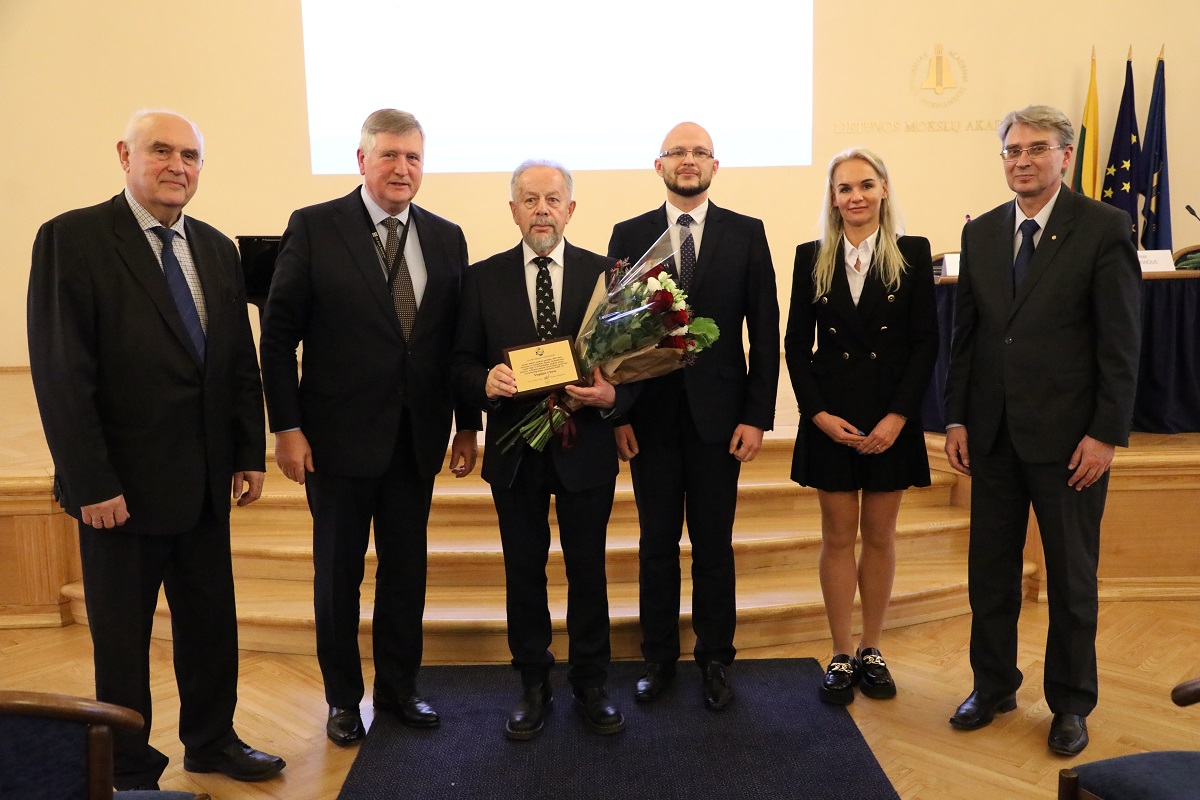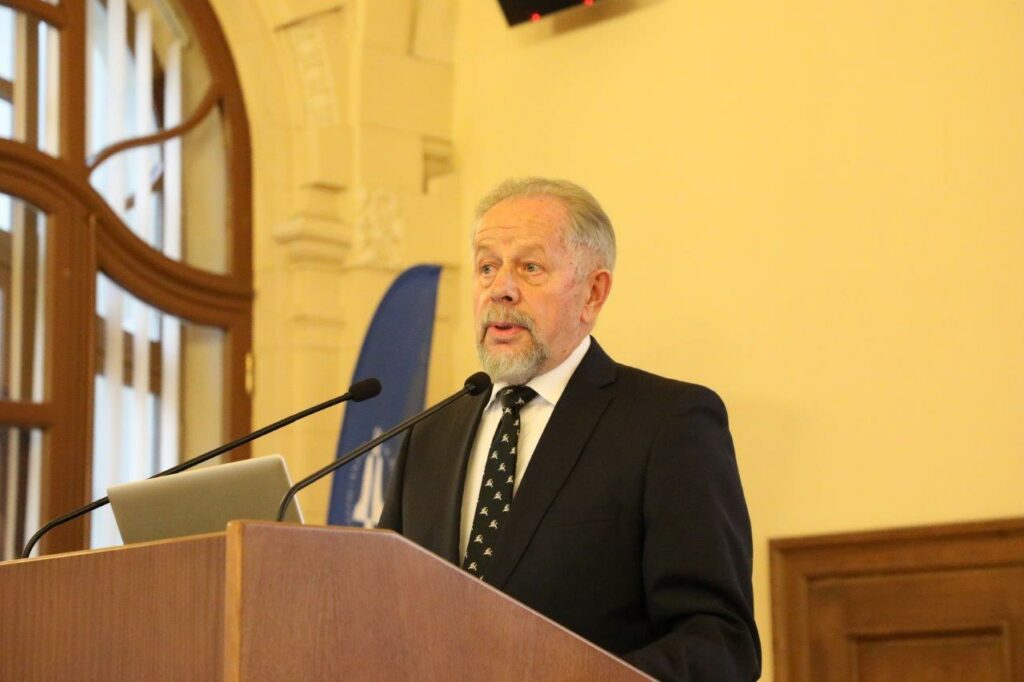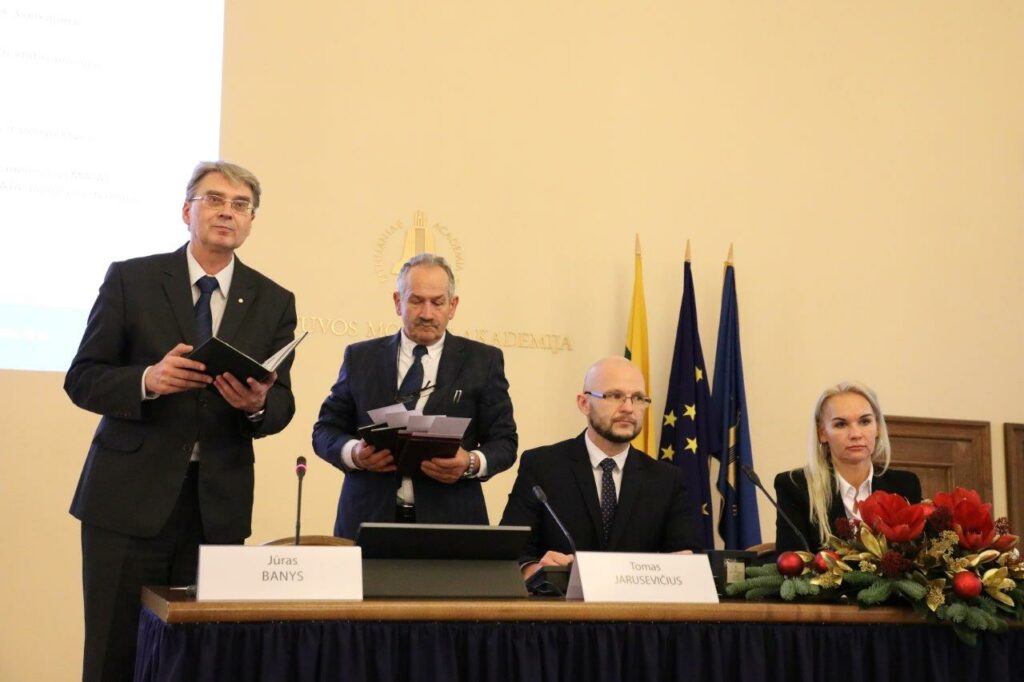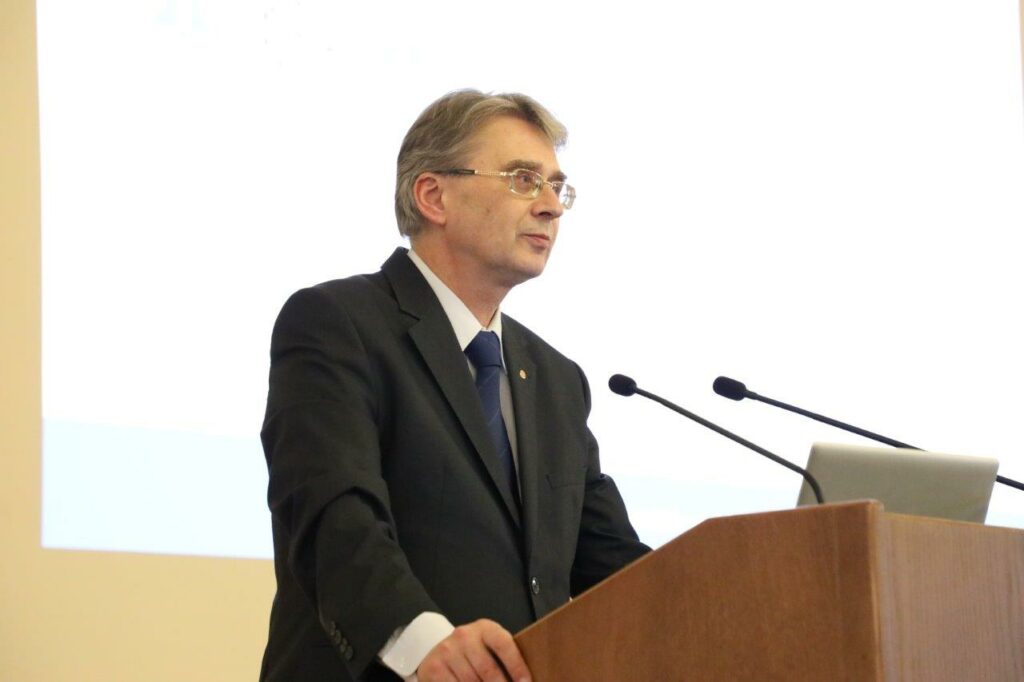The LSMU professor, who discovered ways to diagnose diseases from the sound of the voice, received the Kaunas City Science Prize this year

The “Voice doctor”: this is the first association that arises when you find out how much the Lithuanian University of Health Sciences (LSMU) Professor Habil. Dr. Virgilijus Ulozas can be told by voice data from patients. According to the professor, otolaryngologist, in an information sense, the voice is an entire ocean of data. At present, there are nearly a thousand different acoustic voice parameters.
With the help of information technology, the voice function analysis software developed by the professor together with the team of LSMU and KTU researchers is already saving the health and lives of patients. Professor V. Ulozas already arrives for consultations for patients whose voice was analysed by the mobile application VoiceScreen for early diagnosis of laryngeal disease.
VoiceScreen, a mobile app developed a few years ago, is currently accessible in 13 languages worldwide, available in both iOS and Android operating systems. The voice health index has just been successful – and the professor – V. Ulozas and his colleagues are already working on a new project of critical replacement voice after oncological surgeries analysis and its improvement.
For these merits LSMU Professor, Otorhinolaryngology Doctor Habil. Dr. Virgilijus Ulozas was awarded the 2023 Kaunas City Science Prize.
What inspired your interest in information technology in medicine? – we asked the professor.

The introduction to information technologies that could be applied to diagnostics began a long time ago. A variety of voice disorders, hoarseness, affects almost 10% of all people. The cause may not only be common colds or voice fatigue after heavy exertion. As a laryngologist, it is necessary to diagnose various diseases of the larynx, including laryngeal cancer.
The goal of treatment is often to restore vocal disorders, improve voice, and the treatment itself is called phonosurgery, or vocal surgery. In such cases, the evaluation of the patient’s voice is very important both in the diagnosis of the disease and in the evaluation of the effectiveness of treatment. This was objectively possible with the rapid development of information technologies, which we used, taking advantage of the most modern methods to analyse the voice signal. With the development of science and technology, the accumulated data and discoveries turned into real products.
VoiceScreen is one of the most successful, but no longer the only app you can use if you’re worried about how your voice functions.
It has no equivalent in the world and is being improved. VoiceScreen is successfully spreading internationally: During various scientific events, you have to communicate with a lot of strangers from different countries – they share the experience of using the application, ask about similar products, sometimes they say: ‘when it’s done, it seems so simple, and we didn’t think about it ourselves’. This assessment, recognition, of course, is a pleasure – but we have already developed other products related to voice analysis. These include the Voice Wellness Index mobile app, which combines both the acoustic voice of the patient and the information provided in a special questionnaire. This new app significantly increases diagnostic accuracy.
Both VoiceScreen and Voice Wellness Index applications are simple, affordable, user-friendly tools that I use as a doctor in my daily work. Interestingly, patients who have been sent to the consultation by other doctors have arrived having already tried using the VoiceScreen app to investigate the patient’s voice changes.
What are the challenges of scientific research? Could technology and artificial intelligence (AI) really replace the doctor laryngologist?
Perhaps the most shocking challenge was to be faced by a distinguished British colleague, presenting at an international conference in the UK a method of automated acoustic voice analysis that was still being developed at the time. A distinguished British scientist was outraged that if an automated voice analysis is being developed, doctors will be unnecessary, they will be removed, we cannot allow this, such software must be stopped.
Such an attack by a respected scientist, not a doctor, but a voice specialist, surprised me and immediately reminded me of workers who, more than two centuries ago, opposed the introduction of machines in the UK. Moreover, we have also faced obstacles to our scientific publications. In the scientific world, challenges are often presented not by technology, but by people.
It has been a long time since this memorable conference – and neither information technology nor the rapidly established artificial intelligence (AI) have replaced the doctor. AI is a convenient tool that makes work easier, and that’s that. It accelerates, improves, deepens knowledge and work, but whatever the technology is, it is only an advisory tool, and the final decision is made by the doctor.
Your plans for the future: maybe you are already developing new software?
Having won two research projects funded by the Research Council of Lithuania (LMT), currently together with scientists from the Faculty of Informatics of Kaunas University of Technology (KTU), led by Professor Rytis Maskeliūnas, we are focused on the work of trying to solve the problems of the so-called replacement voice after surgeries of the laryngeal cancer.
A replacement is a voice that speaks for patients after complex laryngeal surgeries, when one or both vocal folds are removed. The voice is then extracted with other replacement structures, its quality is very poor, so the patient has difficulty in talking, and is experiencing many difficulties – social and other isolation.
Together with the scientists from KTU, using information technologies, methods and algorithms are developed to help analyse such a voice. We already have successful results published in prestigious international scientific journals. We also develop algorithms to automatically improve the quality of such a substitute voice by clearing the voice signal, otherwise enriching it so that it is as similar as possible to a normal voice.
This is a large technologically and otherwise complex project, which I consider to be a scientific task of primary importance. I hope that the project will be successful: especially since presenting at international conferences, forums, the scientific community recognises that we are the leading team in this field, with the highest level of expertise.
With what thoughts did you receive the Kaunas City Science Prize?
It is very pleasant to see that the work done for the benefit of science and society is properly evaluated. This is an evaluation of the long-term efforts of our team of scientists.






Photos by Virginija Valuckienė.
